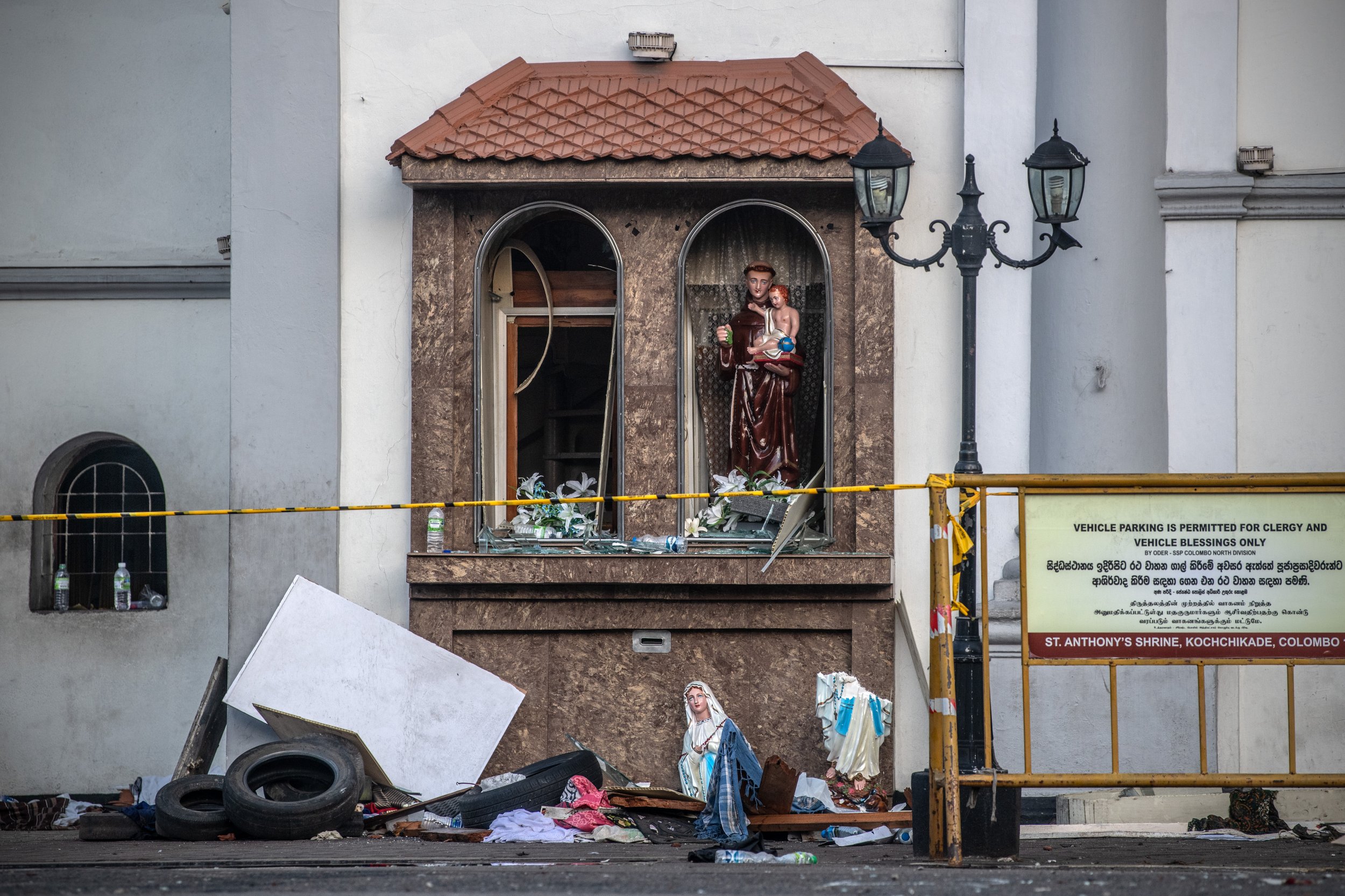
The Sri Lankan government has identified the National Tawheed Jamath, a local extremist outfit, as the group behind the devastating bombings on Easter Sunday. The deadly series of blasts ended over 300 lives and destroyed several churches.
The National Tawheed Jamath is a relatively unknown organization, but documents shown to various news agencies noted that Sri Lanka's police chief issued a warning on April 11, stating that a "foreign intelligence agency" had reported that the group was planning attacks on Christians, particularly their churches. Rajitha Senaratne, a Sri Lankan government spokesperson, also said that investigators were exploring whether the group had "international support."
The violent targeting of Christians and their sacred places of worship brings into focus the Covenants of Prophet Muhammad with the Christians of the World. This set of treaties between Muhammad, the early Muslim community, and the Christians in their midst highlight an approach that is inarguably the polar opposite of the deadly actions carried out by the National Tawheed Jamath.
One of the Covenants between Muhammad and the Christians of his time, the Covenant with the Christian Monks of Mount Sinai, has been featured by 60 Minutes in its visit to Saint Catherine's Monastery in the Sinai Peninsula, Egypt. The Covenant with the Sinai Monks explicitly mentions that "no building from among their churches shall be destroyed… Whoever does such a thing violates Allah's covenant and dissents from the Messenger of Allah."
The Covenant with the Christians of Najran is also critical in light of the attacks on Christians and their churches in Sri Lanka. Like the Covenant with the Sinai Monks, the agreement with the Christians of Najran reflects Prophet Muhammad's pluralistic views towards Christians and Christianity as a whole. Muhammad made it clear to the Christian Najrans that he will commit himself "to support them, to place their persons under [his] protection, as well as their churches, chapels, oratories, the monasteries of their monks, the residences of the anchorites, wherever they are found, be they in the mountains or the valleys, caves or inhabited regions, in the plains or in the desert."
Prophet Muhammad's direct interactions with the Christian Najrans also show why the National Tawheed Jamat's actions are the antithesis of Muhammad's vision for Christians living in a predominantly Muslim community. Muhammad had invited the Christians of Najran, a town located in southern Saudi Arabia, to visit his mosque in Medina. Upon their arrival Muhammad, his companions, and the Christian delegation from Najran discussed various matters including Muhammad's leadership, the structure of the first "Muslim state," as well as the similarities and differences between the Islamic and Christian faiths. The Muslims and Christians did not agree on the theological premises of their respective religious traditions, but the two communities engaged with each other in a civil and constructive manner. Once their dialogue was completed, Muhammad did something quite remarkable.
The Christians of Najran had requested permission to exit the door of Muhammad's mosque in Medina to carry out their prayers. When Muhammad had noticed that the Christians were leaving the mosque to pray outside, he had cordially requested that they come back inside the mosque to pray to the God of Abraham. The Christians accepted the invitation. The Najrans praying inside the Prophet's mosque in Medina is recognized by scholars as one of the first examples of Christian-Muslim bridge building.
By inviting the Christians of Najran to pray inside the Medina mosque, Muhammad had transcended mere religious tolerance of Christians. He had entered into the realm of religious pluralism, or the energetic engagement of religious diversity that is based on the principles of interfaith dialogue, genuine education across religious communities, interreligious civic commitments, and interfaith community building.
Put another way, the grotesque actions by the National Tawheed Jamath are the opposite of Muhammad's vision for Muslims living in a diverse world. Christians that believe Islam is inherently intolerant of Christianity would also be wise to review the Covenants in the hope of building a more pluralistic and peaceful world.
Dr. Craig Considine is based at the Department of Sociology at Rice University. Considine is the author of Islam in America: Exploring the Issues (ABC-CLIO Summer 2019), and Islam, Race, and Pluralism in the Pakistani Diaspora (Routledge, 2017,) among other titles.
Uncommon Knowledge
Newsweek is committed to challenging conventional wisdom and finding connections in the search for common ground.
Newsweek is committed to challenging conventional wisdom and finding connections in the search for common ground.
About the writer
To read how Newsweek uses AI as a newsroom tool, Click here.








